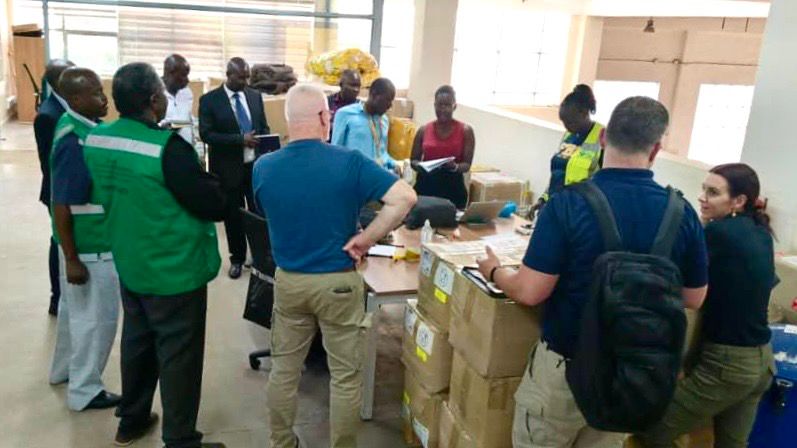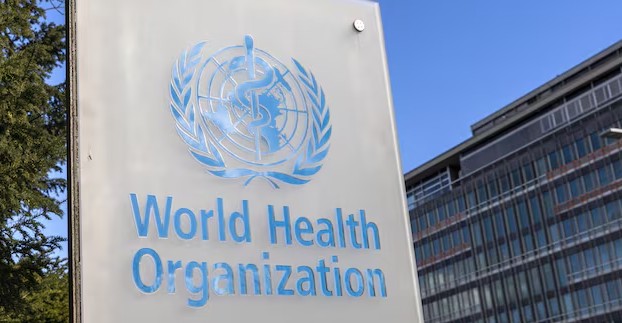Joint Kenya, Uganda operation uncovers illegal medical trade network

Chief Executive Officer of PPB Fred Siyoi, warned that health products and technologies obtained outside of the regulated supply chain risk public and consumer health.
The Pharmacy and Poisons Board (PPB) in collaboration with Uganda's National Drug Authority has exposed a troubling network of illegal medical products entering the two countries.
According to the authorities, the seized items including human medicines, biological products, and dietary supplements, enter the nations through postal and air cargo routes.
More To Read
- Government orders crackdown on counterfeit and poor-quality medicines in Kenya
- African nations pledge to boost local manufacturing of medical products
- Kenya leads push for stronger regulation of medicines, vaccines in Africa
- KMPDC launches 2026 licence renewal for doctors, health facilities
- Pharmacy and Poisons Board flags falsified batch of Avastin (Bevacizumab 100 mg)
- Pharmacy board dismisses claims of medicine import ban, says drug supply uninterrupted
During the operation, the team found medicines that had been stored and shipped outside of approved conditions; prescription medicines lacking valid prescriptions and not declared to avoid detection; and dietary supplements known to contain undeclared active pharmaceutical ingredients imported in violation of domestic regulations.
The discovery has raised significant concerns about public health and the challenges of regulating cross-border pharmaceutical trade.
The joint operation, named Operation African Star, involved enforcement agencies from Kenya, Uganda, the United States, the United Kingdom, the European Union, multinational organisations, and the regulated pharmaceutical industry. Its goal is to enhance health security and disrupt the illicit trade of health products, pharmaceutical preparations, medical devices, and equipment across Africa.
Chief Executive Officer of PPB Fred Siyoi, warned that health products and technologies obtained outside of the regulated supply chain risk public and consumer health.
He noted that the threat posed by illicit trade in health products and technologies also impacts global public health and consumers.
“This risk increases when health products and technologies are obtained outside of the regulated supply chain. Safety and efficacy, which cannot be assured, threaten the East African Community and public health at large. Individuals who purchase prescription medicines from unauthorised sources may be putting their health at risk because these medicines may be falsified, substandard, expired, or otherwise unsafe for use; as many of these products are used to treat serious or life-threatening medical conditions,” he warned.
He emphasised that the operation was initiated due to concerns that small parcels passing through Kenya's postal services might contain restricted substances. He said the first phase of the operation took place in Kenya on June 11 and 12, followed by a second phase in Uganda on June 14 and 15.
Intercepted
He noted that no large consignments were detected from Kenyan postal services, but several parcels were intercepted at Jomo Kenyatta International Airport including items such as semaglutide injections and various dietary supplements.
“From the Kenyan postal and courier services, no huge consignments were noted apart from parcels intercepted and seized at Jomo Kenyatta International Airport via DHL, for verifications due to the unavailability of requisite PPB documentation. They include fiatro; semaglutide injection 24 vials, kidney tonifying capsules 120tabs, lexotanil 1.5mg tabs 30, green nature herbals 60 tins, male restoration 60 tins,” Siyoi said.
He said that even though no suspects were caught, investigations touching on the consignments are ongoing.
“These parcels were seized due to missing PPB documentation. The investigations are ongoing, but no suspects have been apprehended. The seized shipments are in customs storage awaiting further action,” he said.
He noted that additional research is needed to gauge the full extent of illicit trade. A memorandum of understanding with the Anti-Counterfeit Authority also aims to investigate the issue further.
Assistant Commissioner for Criminal Investigations for the United States Food and Drug Administration Justin Green explained that due to the increased accessibility of medicines in the global supply chain, countries are finding it challenging to identify illicit products and hold bad actors accountable.
“The Food and Drug Administration (FDA) greatly appreciates the opportunity to work with Kenyan, Ugandan, and other key international partners to bring focus to global public health threat, and it values the implementation of a pioneering initiative to combat it,” he said.
The PBB said efforts are underway to alert consumers of the dangers associated with illicit medicines, as well as enforcement actions.
Top Stories Today


















































